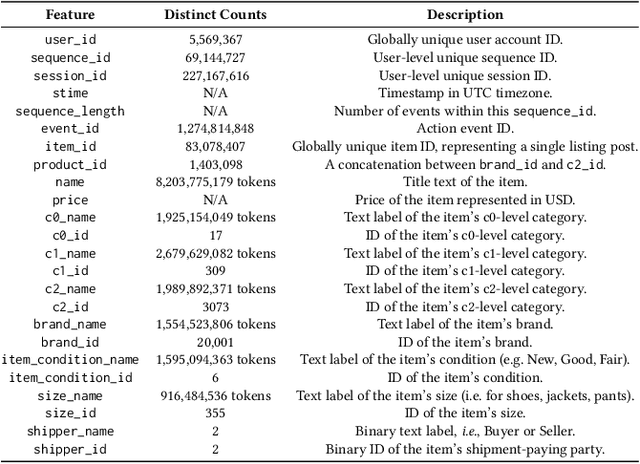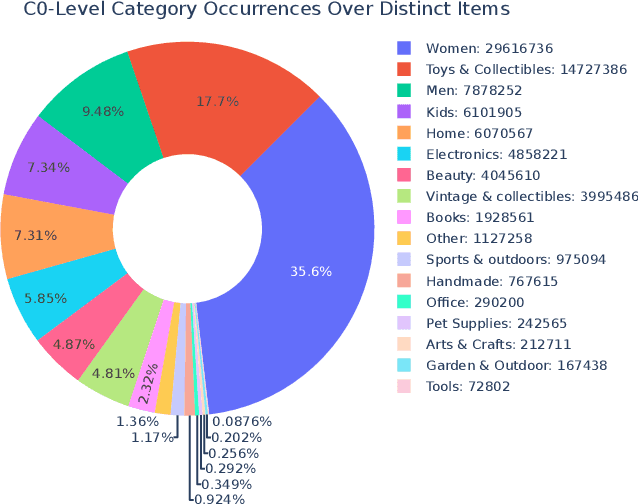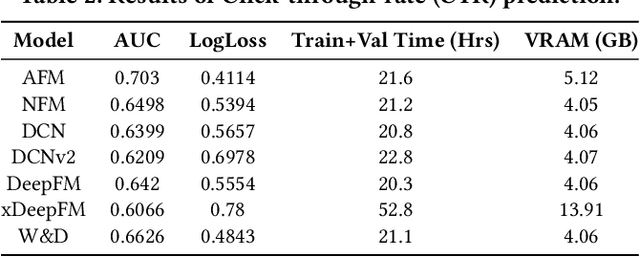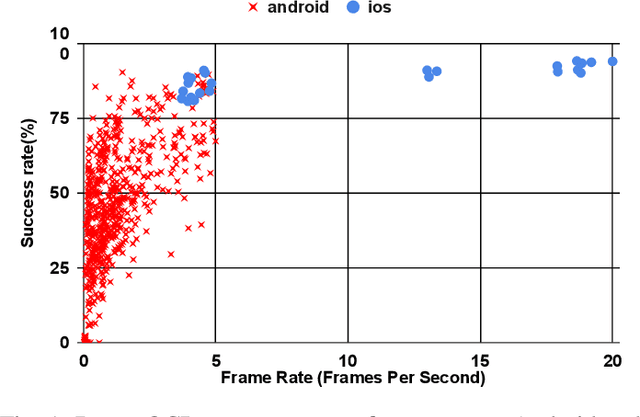Zainul Abi Din
University of California, Davis
MerRec: A Large-scale Multipurpose Mercari Dataset for Consumer-to-Consumer Recommendation Systems
Feb 22, 2024



Abstract:In the evolving e-commerce field, recommendation systems crucially shape user experience and engagement. The rise of Consumer-to-Consumer (C2C) recommendation systems, noted for their flexibility and ease of access for customer vendors, marks a significant trend. However, the academic focus remains largely on Business-to-Consumer (B2C) models, leaving a gap filled by the limited C2C recommendation datasets that lack in item attributes, user diversity, and scale. The intricacy of C2C recommendation systems is further accentuated by the dual roles users assume as both sellers and buyers, introducing a spectrum of less uniform and varied inputs. Addressing this, we introduce MerRec, the first large-scale dataset specifically for C2C recommendations, sourced from the Mercari e-commerce platform, covering millions of users and products over 6 months in 2023. MerRec not only includes standard features such as user_id, item_id, and session_id, but also unique elements like timestamped action types, product taxonomy, and textual product attributes, offering a comprehensive dataset for research. This dataset, extensively evaluated across six recommendation tasks, establishes a new benchmark for the development of advanced recommendation algorithms in real-world scenarios, bridging the gap between academia and industry and propelling the study of C2C recommendations.
Doing good by fighting fraud: Ethical anti-fraud systems for mobile payments
Jun 29, 2021



Abstract:App builders commonly use security challenges, a form of step-up authentication, to add security to their apps. However, the ethical implications of this type of architecture has not been studied previously. In this paper, we present a large-scale measurement study of running an existing anti-fraud security challenge, Boxer, in real apps running on mobile devices. We find that although Boxer does work well overall, it is unable to scan effectively on devices that run its machine learning models at less than one frame per second (FPS), blocking users who use inexpensive devices. With the insights from our study, we design Daredevil, anew anti-fraud system for scanning payment cards that work swell across the broad range of performance characteristics and hardware configurations found on modern mobile devices. Daredevil reduces the number of devices that run at less than one FPS by an order of magnitude compared to Boxer, providing a more equitable system for fighting fraud. In total, we collect data from 5,085,444 real devices spread across 496 real apps running production software and interacting with real users.
 Add to Chrome
Add to Chrome Add to Firefox
Add to Firefox Add to Edge
Add to Edge